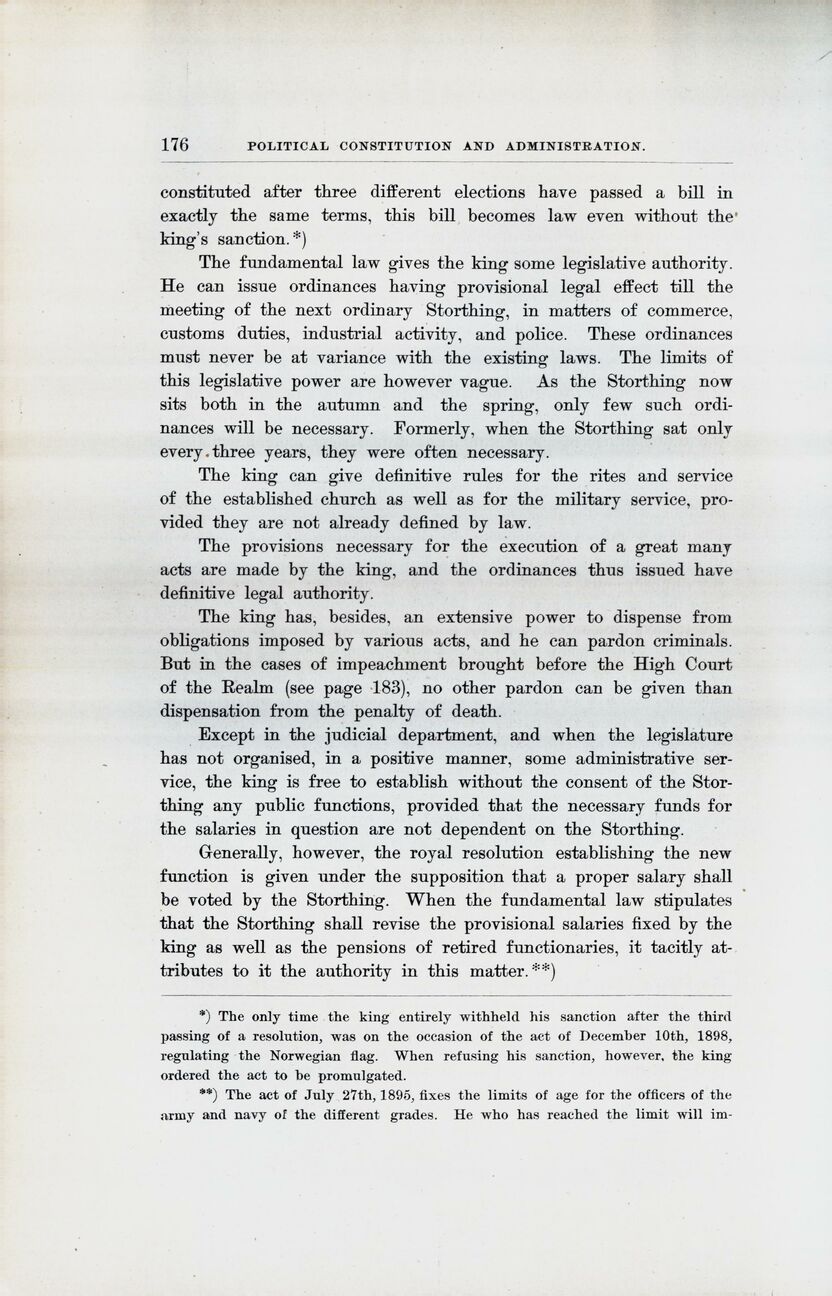
Full resolution (JPEG) - On this page / på denna sida - Political Constitution and Administration, A. Færden

<< prev. page << föreg. sida << >> nästa sida >> next page >>
Below is the raw OCR text
from the above scanned image.
Do you see an error? Proofread the page now!
Här nedan syns maskintolkade texten från faksimilbilden ovan.
Ser du något fel? Korrekturläs sidan nu!
This page has been proofread at least once.
(diff)
(history)
Denna sida har korrekturlästs minst en gång.
(skillnad)
(historik)
constituted after three different elections have passed a bill in
exactly the same terms, this bill becomes law even without the
king’s sanction. [1]
The fundamental law gives the king some legislative authority.
He can issue ordinances having provisional legal effect till the
meeting of the next ordinary Storthing, in matters of commerce,
customs duties, industrial activity, and police. These ordinances
must never be at variance with the existing laws. The limits of
this legislative power are however vague. As the Storthing now
sits both in the autumn and the spring, only few such
ordinances will be necessary. Formerly, when the Storthing sat only
every three years, they were often necessary.
The king can give definitive rules for the rites and service
of the established church as well as for the military service,
provided they are not already defined by law.
The provisions necessary for the execution of a great many
acts are made by the king, and the ordinances thus issued have
definitive legal authority.
The king has, besides, an extensive power to dispense from
obligations imposed by various acts, and he can pardon criminals.
But in the cases of impeachment brought before the High Court
of the Realm (see page 183), no other pardon can be given than
dispensation from the penalty of death.
Except in the judicial department, and when the legislature
has not organised, in a positive manner, some administrative
service, the king is free to establish without the consent of the
Storthing any public functions, provided that the necessary funds for
the salaries in question are not dependent on the Storthing.
Generally, however, the royal resolution establishing the new
function is given under the supposition that a proper salary shall
be voted by the Storthing. When the fundamental law stipulates
that the Storthing shall revise the provisional salaries fixed by the
king as well as the pensions of retired functionaries, it tacitly
attributes to it the authority in this matter.[2]
<< prev. page << föreg. sida << >> nästa sida >> next page >>